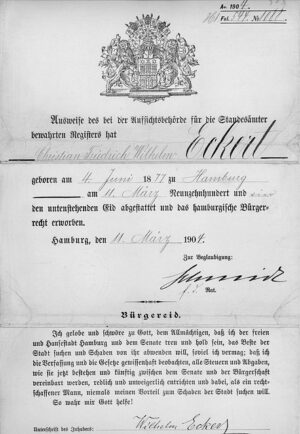In the UK legal system, notarised translation services UK play a pivotal role in ensuring foreign language documents meet the stringent standards required for court submission. These services involve translators, often affiliated with recognized institutions like the Institute of Translation and Interpreting (ITI) or Chartered Institute of Linguists (CIOL), who translate documents and then notaries public, who verify both the identity of these professionals and the accuracy of their translations. This notarization process is vital for authenticity, preventing potential fraud and ensuring that the translations are a true representation of the original content. The final step involves certification by an authorized body to confirm linguistic precision and completeness, making the documents legally admissible in UK courts. Notarised translation services UK thus facilitate a secure and efficient process within legal proceedings, providing assurance that all translated documents maintain the integrity necessary for legal cases and transactions across different jurisdictions. These services are indispensable for international recognition of documents and are essential for legal professionals and clients dealing with non-English materials in the UK's judicial system.
When legal matters transcend language barriers, the accuracy and authenticity of translations become paramount. This article elucidates the critical role of certified notarized translations in court submissions within the UK judicial system. It delineates the essential distinctions between certified and notarized translations, particularly in a legal context, ensuring that your documents meet the stringent standards required by UK courts. We will navigate through the process of obtaining these translations and explore the pivotal function of notarised translation services UK in upholding document integrity during legal proceedings.
- Understanding the Necessity of Certified Notarized Translations for Court Submissions in the UK
- The Process of Obtaining a Certified Notarized Translation in the UK
- Key Differences Between Certified and Notarized Translations in Legal Contexts
- Navigating the Role of Notarised Translation Services UK in Legal Proceedings and Document Authenticity
Understanding the Necessity of Certified Notarized Translations for Court Submissions in the UK

In the UK legal system, precision and authenticity are paramount, especially when it comes to court submissions involving documents in foreign languages. To ensure that translations meet the stringent requirements of the courts, notarised translation services UK play a crucial role. A notarised translation is one that has been certified by a qualified translator and then authenticated by a notary public, attesting to the accuracy and completeness of the translated content. This process is essential as it confirms that the translation is a true and faithful representation of the original document, which is vital for legal proceedings where language discrepancies could lead to misunderstandings or misrepresentation of facts. The notary’s stamp of approval provides an additional layer of assurance that the translation has been performed by a professional with the necessary expertise and that the translated text is identical to the source material. Utilising notarised translation services UK ensures compliance with legal standards, facilitating smoother processing of documents within the judicial system. It is a safeguard for all parties involved, ensuring that translations do not compromise the integrity of legal cases or transactions.
The Process of Obtaining a Certified Notarized Translation in the UK

In the UK, legal proceedings that require documentation in a foreign language necessitate a certified notarized translation to ensure the accuracy and authenticity of the content. This process involves two distinct but complementary steps: notarization and certification. To begin with, the translation itself must be executed by a professional translator who is adept at both the source and target languages. The translator should ideally be a member of a reputable institution, such as the Institute of Translation and Interpreting (ITI), to guarantee professional competence. Once completed, the translation must be submitted to a notary public. The notary will verify the identity of both the translator and the individual who commissioned the translation, ensuring that they are genuine and that the translation is indeed their work. This is crucial as it prevents fraudulent documents from entering the legal system. Upon confirmation, the notary will affix their official seal or stamp to the document, thereby notarizing it. The final step involves sending the notarized translation to an approved translation body, like the Chartered Institute of Linguists (CIOL), for certification. This body will review and certify that the translation is accurate and complete, fulfilling the legal requirements for submission to a UK court. This meticulous process upholds the integrity of the document and the due course of justice within the legal framework of the UK. Individuals or organizations requiring these services should seek out specialized notarised translation services UK that offer both the notarization and certification under one roof, streamlining the procedure and ensuring compliance with legal standards. This approach not only saves time but also provides peace of mind that the translation will be accepted by courts without any legal impediments.
Key Differences Between Certified and Notarized Translations in Legal Contexts

When engaging with legal proceedings, the accuracy and authenticity of foreign language documents are paramount. In the UK, both certified and notarized translations serve pivotal roles within this context, each with distinct applications and implications. Notarised translation services UK play a crucial role in validating translations for international use, particularly when submitting to courts where legal proceedings take place. A notarized translation is executed by a notary public who confirms the identity of the translator and attests to the translated content’s authenticity and accuracy. This process ensures that the document can be accepted in numerous jurisdictions, making it an indispensable step for international litigation.
On the other hand, certified translations are undertaken by professional translators who hold a certification from a relevant authority. These translations undergo a specific verification process where the translator declares that the translation is complete and faithful to the original document. In the UK, this often involves a translated document being stamped and/or accompanied by a statement from the translator, which can then be further authenticated by an authorised signatory, such as a solicitor or lawyer. While both notarized and certified translations are essential for legal submissions, the choice between them depends on the specific requirements of the UK court or government department involved. Notarised translation services UK are particularly beneficial when dealing with international courts or legal entities that require an additional layer of verification beyond what a certified translation provides.
Navigating the Role of Notarised Translation Services UK in Legal Proceedings and Document Authenticity

In the context of legal proceedings within the UK, the role of certified and notarised translation services is paramount for ensuring document authenticity. When a document needs to be submitted to a court, it must be presented in English or the language understood by the court, and this is where these specialised services become indispensable. Notarised translation services UK are equipped with professional translators who not only translate the content accurately but also certify its authenticity. This certification is critical as it confirms that the translated document reflects the original text’s meaning without any alterations, additions, or omissions. The notary public involved in this process verifies the identity of both the translator and the person signing the translation. They attest under oath that the translation is complete and correct, thus making it legally binding and acceptable in a court of law within the UK. This rigorous process upholds the integrity of legal documents and ensures that all parties involved can trust the translated content to be a true representation of the original, thereby facilitating fair and just proceedings.
The importance of notarised translation services UK extends beyond mere linguistic equivalence; it encompasses the legal compliance and recognition of foreign documents. In a multicultural country like the UK, where individuals from diverse linguistic backgrounds frequently interact with the legal system, these services are invaluable. They bridge the language gap, allowing for seamless communication between non-native speakers and legal entities. The notarised seal on a translation serves as a guarantee of its reliability, making it an essential tool for solicitors, barristers, and legal practitioners who deal with international law or clients requiring documentation in a foreign language. This meticulous verification process is designed to prevent fraudulent activities and uphold the legal system’s credibility, ensuring that all documentation presented in court is of the highest standard and integrity.
In the UK legal system, the accuracy and authenticity of foreign language documents are paramount. This article has elucidated the critical role of notarised translation services UK in ensuring that court submissions are comprehensible to all parties involved, thereby upholding the integrity of legal proceedings. The necessity of certified translations, distinguished from standard ones by their authoritative validation, is a safeguard for justice and fairness. Prospective litigants must understand the process and importance of engaging professional notarised translation services UK to navigate this requirement successfully. By adhering to the rigorous standards set forth by these services, legal documents are rendered reliable, facilitating smoother progression through judicial channels. Consequently, anyone facing the need for such translations should seek out reputable providers to guarantee their court submissions meet all legal stipulations without delay or ambiguity.
